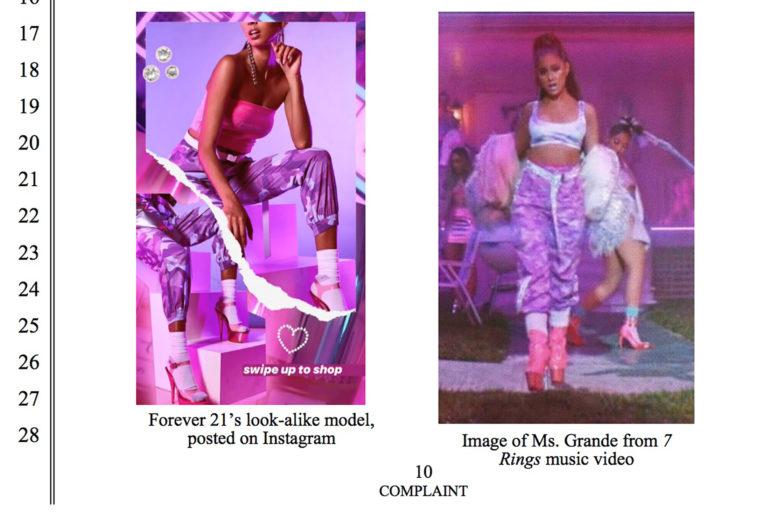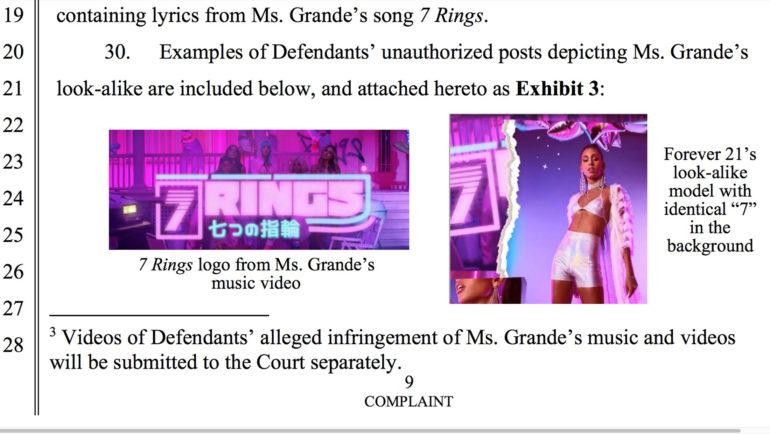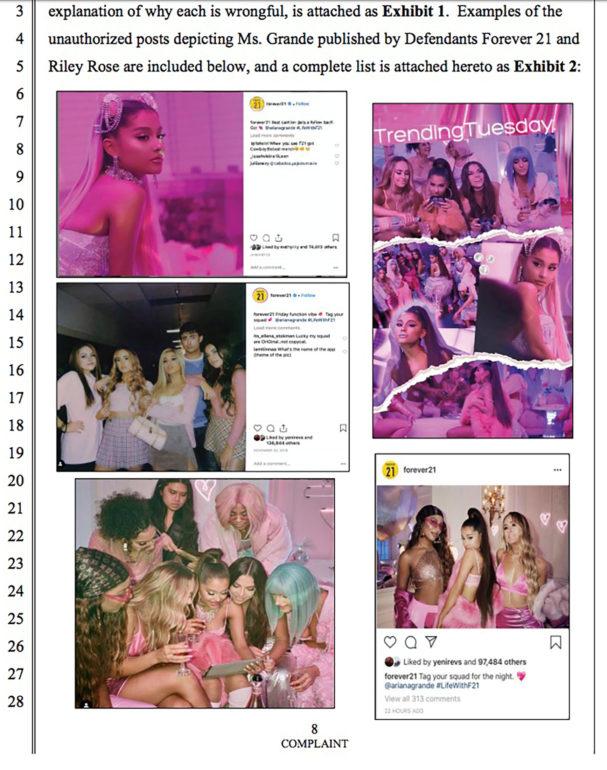Ariana Grande sues Forever 21 for $10 million over look-alike ad campaign
(Reuters) – Popular singer Ariana Grande has sued Forever 21 for $10 million, accusing the fashion retailer and a beauty company started by its billionaire founders’ daughters of piggybacking off her fame and influence to sell their wares.
In a complaint filed on Monday, Grande said Forever 21 and Riley Rose misappropriated her name, image, likeness and music, including by employing a “strikingly similar” looking model, in a website and social media campaign early this year.
She said this followed the breakdown of talks for a joint marketing campaign because Forever 21 would not pay enough for “a celebrity of Ms. Grande’s stature,” whose longer-term endorsements generate millions of dollars in fees.
Grande has more than 65 million Twitter followers and 163 million Instagram followers. A core part of the 26-year-old’s fan base overlaps Forever 21’s and Riley Rose’s target markets.
“Forever 21 does not comment on pending litigation as per company policy,” the company said in a statement. “That said, while we dispute the allegations, we are huge supporters of Ariana Grande and have worked with her licensing company over the past two years. We are hopeful that we will find a mutually agreeable resolution and can continue to work together in the future.”
Riley Rose did not immediately respond on Tuesday to emailed requests for comment.
Founded in 1984, Forever 21 said it recently had 815 stores in 57 countries.
Its founders, Do Won and Jin Sook Chang, are worth $1.5 billion according to Forbes magazine. Their daughters, Linda and Esther Chang, opened the first Riley Rose boutique in 2017.
According to Grande’s complaint, Forever 21 and Riley Rose misappropriated at least 30 images and videos, including by using audio and lyrics from her recent No. 1 single “7 Rings,” and by using the look-alike model.
“The resemblance is uncanny,” the complaint said.
Grande’s lawsuit in Los Angeles federal court seeks damages for copyright and trademark infringement, false endorsement, and violating her right of publicity.
The case is Grande-Butera et al v Forever 21 Inc et al, U.S. District Court, Central District of California, No. 19-07600.
(Reporting by Jonathan Stempel in New York; Editing by Steve Orlofsky and Bill Berkrot)




